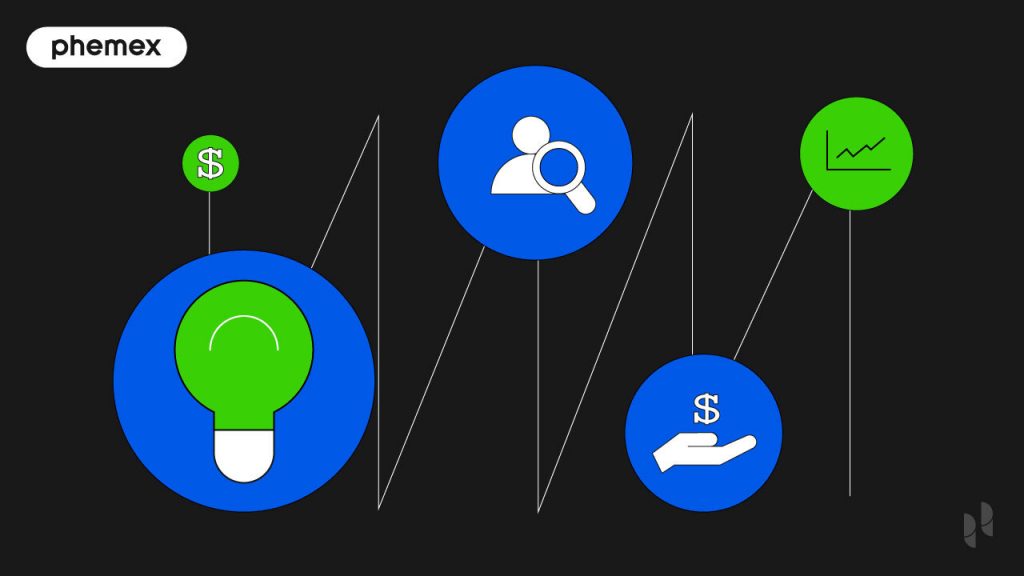Many individual investors rely on the stock market, and perhaps also bonds to a smaller degree, in their investment portfolios. However, a broad range of investment products beyond these asset classes, known as alternative investments, can be used to diversify portfolios and boost returns.
Alternative investments are investments in any asset that is different from traditional investment products, defined as stocks, bonds, cash and cash equivalents.

Alternative Investments vs Traditional Investments
Financial market investments could be categorized into two broad investment categories – traditional and alternative. Investments in company stocks, government and corporate bonds, cash and cash equivalent products belong to the traditional investment category. Investments in any other asset class are classified as alternative investments.
What are Traditional Investment Products?
- Stocks of companies are the most-well known and popular traditional investment product. Many smaller individual investors have the entirety or an overwhelming share of their portfolios allocated to the stock market.
- Bonds are another traditional investment. Unlike stocks, which provide equity, i.e., part-ownership in a company, bonds are debt instruments used by companies or governments to raise debt from individual and institutional investors. Bonds are considered a lower-risk asset than stocks, and guarantee you a certain fixed income over the period of your investment. In the past, most bond products were based on fixed interest rates. However, more recently, variable interest rate bonds have become common. Both companies and governments issue bonds of various kinds to raise capital. Typically, government bonds have lower interest rates but are considered a more secure investment compared to corporate bonds.
- Cash and cash equivalents are another type of traditional investment. Cash refers to paper legal tender notes in your possession, liquid funds held in digital payment wallets, checking accounts, and current accounts. Cash equivalents are financial products with high liquidity and maturity periods under 90 days. These may include:
- Government treasury bills
- Certificates of deposit
- Commercial paper: These are short-term debt products issued by companies for their immediate or short-term financing needs. Commercial paper products have very short maturity periods, which could be just a few days, weeks, or at most months.
- Banker’s acceptance: These are financial guarantees for a future payment issued by a bank, rather than an individual account holder or company. Under these acceptance notes, the bank guarantees a payment of a certain amount at a specified future date.
It should also be noted that various index and mutual funds that invest in the stock market indices, stocks, or bonds are also classified as traditional investments. While your investment in these funds may be structured in a more complex way than an investment in a single stock or a range of stocks, the underlying investment products still belong to the traditional category.

What are Alternative Investment Products?
There is a wide variety of alternative investment products, with the most common types being:
Private equity
Private equity is an investment in companies that are not publicly traded. Private equity investment may be made directly in a company or, alternatively, investors may use private equity funds, where their money is pooled with the funds of others and invested in a variety of private businesses.
Venture capital
Technically speaking, VC investment is a sub-type of private equity. However, the key difference is that private equity is an investment in established private businesses that already represent good return opportunities, while VC is an investment in new companies and start-ups with an anticipation of future growth.

VC investment normally comes with a considerably higher risk than private equity investing. Given that some industry reports suggest up to a 90% failure rate for start-ups, VC investing may be classified as a very high-risk investment type.
Hedge funds
Hedge funds are a variety of investment funds that allocate assets into complex, and often high-risk, assets with the goal of maximizing returns. Hedge funds often invest in asset classes such as derivatives, commodities, and short-term exchange-tradable equities to achieve the best possible returns.
Compared to mutual funds or index funds, hedge funds pursue higher-risk and higher-return investment strategies. Unlike the latter fund types, hedge funds rely heavily on alternative investment asset classes.
Alternative mutual funds (AMF)
AMFs are another type of investment funds that focus on alternative asset classes. Their investment strategies and other characteristics are somewhat different from hedge funds.
One difference is that hedge funds typically require a much higher minimum investment compared to AMFs. The minimum investment requirement in hedge funds is rarely less than $100,000 USD, and is often much higher than this figure. On the contrary, many AMFs require no more than $5,000 – 10,000 USD as the minimum.
Also, many AMFs allow investors to access their funds at any time, i.e. they are a highly liquid investment product. Hedge funds typically restrict payouts and withdrawal options to once in 6 months, once a year, or even once in several years.
Hedge funds also use leverage strategies to a much higher degree than AMFs, resulting in comparatively higher risks and higher potential returns compared to AMFs.
Commodities
Commodities are also classified as an alternative investment class. This includes precious metals, such as gold, silver, and platinum. It should be stressed that while, on average, alternative investments are considered to be higher risk than traditional investments, this is not always the case.
For example, precious metals, particularly gold, have traditionally been viewed as lower-risk assets than stocks.
Derivatives
Derivatives are a class of investment products which derive their characteristics from some other underlying assets, hence the name. Derivatives are often structured in a very complex way, depend on some highly volatile and high-risk assets, and are traded using significant leverage.

Real estate
Some financial analysts attribute RE investments to the traditional category. However, the majority of the industry treats RE as an alternative investment class. This shift may have occurred due to RE investments’ instability over recent decades. The potentially volatile nature of RE particularly came to light during the US subprime mortgage crisis of 2008.
Cryptocurrency
Crypto assets are considered an alternative investment. As the cryptocurrency market has been growing over the last decade, many investors started paying attention to this asset class. Considered a somewhat “exotic” product just a few years ago, cryptocurrencies are now a commonly used alternative investment class.
Managed futures
Managed futures are investment products based on a portfolio of futures, which is one specific type of derivatives. They are managed by registered investment professionals known as Commodity Trading Advisors (CTAs).
Antiques and collectibles
Antiques are items valued for their age and rarity, and collected by individuals with an appreciation for the items. They can also be collected for investment and store-of-value purposes. Collectibles are, in many ways, similar to antiques but do not have to be old or particularly rare.
An old and highly valuable painting is an example of an antique, while a sticker with your favorite sport team’s logo, a modern and not particularly expensive item, would be a collectible.
Both antiques and collectibles are considered alternative investments. There are specialized marketplaces where collectors and enthusiasts of a specific antique or collectible type congregate to trade in those items.

For cryptocurrency investors, the antiques and collectibles category may be familiar from the non-fungible token (NFT) marketplaces and projects.
What Are the Advantages of Alternative Investments?
There are two primary advantages of alternative investments compared to investing your funds in traditional products:
- Portfolio diversification and risk management:Most alternative investments have low or negative correlations with the stock market. By allocating a part of your portfolio towards alternatives, you can manage your overall investment risk.
- Better returns: Alternatives are, on average, higher-risk but also higher-return products compared to traditionals. Allocating some of your funds to alternative investments may improve your overall portfolio returns. Of course, this is valid for the higher-risk alternative products. Some of the alternatives, such as precious metals or real estate, are not particularly high-return asset classes.
What Are the Disadvantages of Alternative Investments?
The main disadvantages of alternative investment products are:
- Higher risk levels: As alternatives could give you potentially better returns than traditionals, they normally come with a higher overall investment risk.
- Product complexity:Many alternative investment products have complex structures. Thus, they may be poorly understood by casual individual investors. Such investors are advised to avoid these investments or use qualified finance professionals to handle the investments.
- Higher transaction fees:Investing in alternatives may involve higher fees compared to traditional products. This is particularly the case with alternative investments in less efficient markets, such as rare commodities or antiques and collectibles.
Conclusion
Alternative investments are financial products other than stocks, bonds, cash and cash equivalents. There is a wide variety of these products. Most come with higher return potential than traditional products, but also involve higher risks.
Alternatives may be a great way to diversify your portfolio to better manage overall investment risk. However, some of these products may be structured in a complex way and involve higher transaction fees.
For the more complex alternative products, casual investors are advised to use the guidance of professional portfolio managers.
With many individual investors relying heavily on the stock market, exploring alternative investments may be a great strategy.
Read More
- Crypto Trading vs. Investing: Key Differences Explained
- What Are the Different Types of Investments? – Own, Lend, or Keep Cash
- Institutional Investors and Bitcoin: How will they impact Crypto?
- Crypto vs Stocks: What Are They and How Do They Differ?
- Crypto Portfolio Allocation: Should Crypto be Part of Your Portfolio?
- Crypto Index Funds: Gateway to Low-Risk Cryptocurrency Investing
- Which Crypto to Buy Today for Long-term & Short-term?
- What Is an Alternative Trading System (ATS)?








